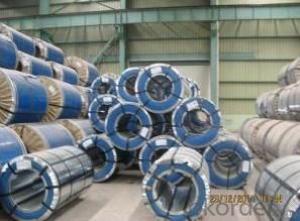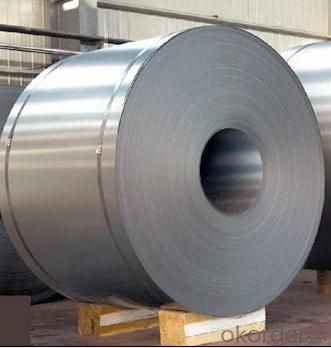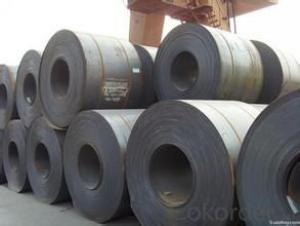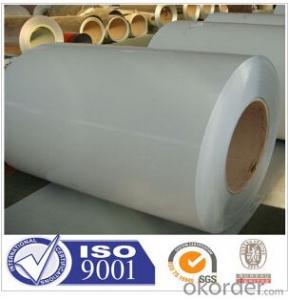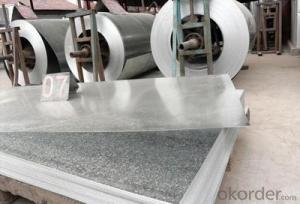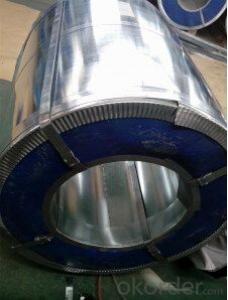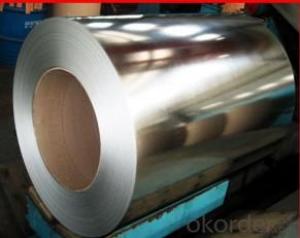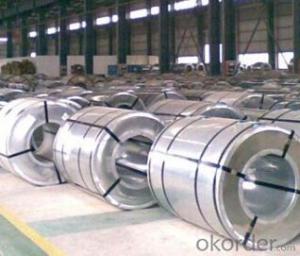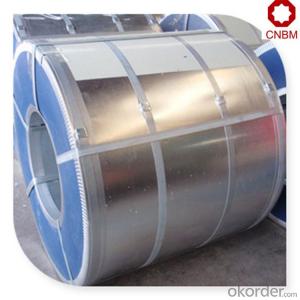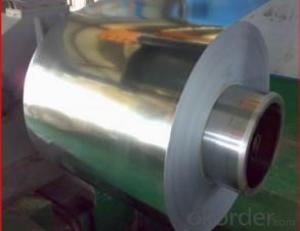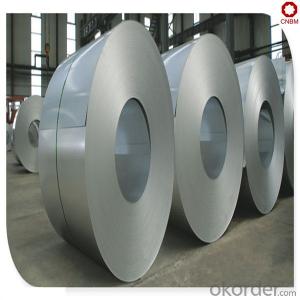Galvanized Steel Coil (DC51D+Z, DC51D+ZF, St01Z, St02Z, St03Z)
- Loading Port:
- Shanghai
- Payment Terms:
- TT OR LC
- Min Order Qty:
- 30 m.t.
- Supply Capability:
- 10000 m.t./month
OKorder Service Pledge
OKorder Financial Service
You Might Also Like
Basic Info.
Model NO.:DC51D+Z, DC51D+ZF, St01Z, St02Z, St03Z
Surface Treatment:Galvanized
Technique:Cold Rolled
Standard:ASTM, JIS, GB, AISI, DIN, BS
Steel Grade:DC51d+Z, DC51d+Zf, St01z, St02z, St03z
Commodity Name:DC51d+Z, DC51d+Zf, St01z, St02z, St03z
Thickness:0.3-3.0mm
Width:800-1830mm
Zinc Coating:40-275g
Delievery Time:15-45days ( on Basis of Qty)
Export Markets:Global
Additional Info.
Trademark:AIYIA GROUP
Packing:Inside: Moisture-Proof Paper/Outside: Steel Plate
Standard:AS buyer requirement
Origin:China
HS Code:72104900
Production Capacity:5000tons Per Month
Product Description
Brief Introduction:
Commodity name : Hot Dipped Galvanized Steel Coil
Standard we can provide: AISI ASTM BS DIN GB JIS
Grade : DC51D+Z,DC51D+ZF,St01Z,St02Z,St03Z
Zinc Coating:40g-275g/m2
Size we can provide:
Size Range: CRC substrate Thickness: 0.3-3.0mm
CRC substrate Width: 800-1830mm
HRC substrate Thickness:1.8-2.8mm
HRC substrate Width:900-1500mm
Chemical elements:
pls check excell below.
Mechanical properties:
pls check excell below.
Weight of Coating and Service life:
If you need, pls write us
Exposure Test :
If you need, pls write us
Salt Spray Test :
If you need, pls write us
Plainness of hot dip galvanized substrate:
If you need, pls write us
Thickness tolerance :
If you need, pls write us
Width tolerance:
If you need, pls write us
- Q: Are steel coils used in construction?
- Yes, steel coils are commonly used in construction. They are used for various applications such as structural framing, roofing, walls, and other components in buildings and infrastructure projects. Steel coils provide strength, durability, and flexibility, making them a popular choice in construction.
- Q: What are the different types of steel coil packaging materials for export?
- There are several different types of steel coil packaging materials that are commonly used for export: 1. Steel Strapping: This is one of the most common and widely used materials for packaging steel coils. Steel strapping is strong and durable, providing excellent protection during transportation. It is available in different widths and thicknesses to accommodate different coil sizes. 2. Stretch Film: Stretch film is a flexible and elastic material that is often used to wrap steel coils. It provides a tight and secure packaging, preventing the coils from shifting or falling during transit. Stretch film is also lightweight, which helps to reduce shipping costs. 3. Corrugated Cardboard: Corrugated cardboard is often used as an outer packaging material for steel coils. It provides additional protection against external impacts and acts as a cushioning material. Corrugated cardboard is available in various strengths and sizes to suit different coil dimensions. 4. Wooden Crates: Wooden crates are a popular choice for packing larger steel coils. They provide a sturdy and robust packaging solution, offering excellent protection against impacts, moisture, and other environmental factors. Wooden crates can be customized to fit specific coil sizes and are often used for heavy-duty or long-distance shipments. 5. Plastic Strapping: Plastic strapping is an alternative to steel strapping, especially for lighter coils. It is lightweight, easy to handle, and resistant to rust and corrosion. Plastic strapping is available in different colors, allowing for easy identification and sorting. 6. VCI (Volatile Corrosion Inhibitor) Packaging: VCI packaging materials are used to protect steel coils from corrosion during export. These materials release a vapor that forms a protective layer on the surface of the coils, preventing rust and corrosion even in high humidity or harsh environments. It is important to consider the size, weight, and specific requirements of the steel coils when choosing the appropriate packaging material for export. Additionally, compliance with international shipping regulations and standards should be ensured to guarantee a safe and efficient transportation process.
- Q: doesnt steel rust?
- ferrous metals rust
- Q: I'm just wondering what the best steel would be for an edc/hunting knife that could put up with alot of abuse.
- i have been a chef for 10 years now and have always had an obsesive composion with my knifes being dual. i hate it. after spending $100's of dollars on knifes i have found a couple of things to be key. where the knife comes from is important. japan and sweden are a notch above the rest. this just has to do with there tradition of fine craftmanship and pride in quality knife making that goes back 1000's of years. the thickness of the blade is important. the thinner the better. and the blade angel most knifes are around 20 degrees but less is better. it makes them easier to sharpen. and don't be fooled knifes need to be hoaned everyday of use the is no such thing as a forever sharp knife. at least not for a chef. so having said that. the best knifes on the market for quality and price are global, mizuno, mac, and the ones i use calphalon katana. investing in a good diamond steel is just as important i use fury fingers by ozzi tech. good luck i wish i had a girlfriend like you.
- Q: How are steel coils used in the production of steel pipes?
- Steel coils are an essential component in the production of steel pipes. These coils serve as the raw material that is used to manufacture the pipes. The first step in the process involves unwinding the steel coil and feeding it into a machine called a slitter. The slitter cuts the coil into narrower strips of the desired width. This width is crucial as it determines the diameter of the steel pipes that will be produced. Once the steel coil has been slit into strips, the next step is to feed these strips into another machine called a forming mill. The forming mill gradually shapes the strips into a cylindrical shape by passing them through a series of rollers. These rollers apply pressure and bend the strips until they take on the form of a pipe. To ensure the durability and strength of the pipes, they undergo a welding process. The ends of the strip are heated and fused together using a high-frequency electric current, resulting in a continuous weld along the length of the pipe. This weld provides structural integrity and prevents any leakage or weak spots in the pipe. After the welding process, the pipes go through a sizing and shaping process. They are passed through additional rollers and gradually reshaped to achieve the desired dimensions, including the final outer diameter and wall thickness. Finally, the pipes are cut to the desired length and undergo various finishing processes such as straightening, testing, and coating. These finishing steps ensure that the pipes meet the required specifications and are ready for use in various applications, such as plumbing, construction, and oil and gas industries. In summary, steel coils are the starting point for the production of steel pipes. They are slit, formed, welded, sized, shaped, and finished to create durable and high-quality pipes that can be used in a wide range of industries.
- Q: can steel boil and turn into a gaseous state?? if so how hot does it have to be for it to boil
- The amount of heat needed can be generated. The heat on the surface of the sun is sufficient. Steel will break down before it gets that hot. The carbon in the steel will oxidize into carbon dioxide, or vaporize into carbon gas. The outer core of the Earth is composed of molten iron and nickel. Its also done in steel plants every day.
- Q: How do steel coils affect the quality of finished products?
- Steel coils can have a significant impact on the quality of finished products. Their quality, including dimensions, surface condition, and mechanical properties, directly affects the final product's strength, durability, and appearance. Coils with inconsistent dimensions or surface defects can lead to uneven or weak finished products. Similarly, if the mechanical properties of the coils do not meet the required specifications, it can compromise the performance and functionality of the end product. Therefore, ensuring the high quality of steel coils is crucial for achieving superior finished product quality.
- Q: What is the average thickness tolerance for steel coils?
- The average thickness tolerance for steel coils can vary depending on the specific industry and application. However, a common tolerance range for steel coils is typically around +/- 0.005 to 0.01 inches.
- Q: My uncle got me some new 'Nam style jungle boots at the px at Fort Worth JSB, and he told me that back in Vietnam, they used to issue guys steel sole boots, that had a sole reinforced with a steel plate, as punji stick d-fence. Is this true, it sounds logical, but I can't figure out how a steel plate in the sole would work. My uncle is kind of a BS'er, plus he wasn't even in Vietnam, much less the Infantry, much less combat, but he was in USAF at the time.
- The steel plate in the boot was about 5 cm long and 2 cm wide, it was located in the midsection of the boot sole but did not cover the heel. Prolonged wear, the humidity and soakings eventually caused the steel piece to break out of the mounding in the inside of the boot and cause blisters.
- Q: What are the common coil handling challenges?
- Some common coil handling challenges include the difficulty in safely lifting and moving heavy coils, ensuring proper alignment and positioning during handling, preventing damage to the coils or surrounding equipment, and efficiently managing coil storage and retrieval.
Send your message to us
Galvanized Steel Coil (DC51D+Z, DC51D+ZF, St01Z, St02Z, St03Z)
- Loading Port:
- Shanghai
- Payment Terms:
- TT OR LC
- Min Order Qty:
- 30 m.t.
- Supply Capability:
- 10000 m.t./month
OKorder Service Pledge
OKorder Financial Service
Similar products
Hot products
Hot Searches
Related keywords
